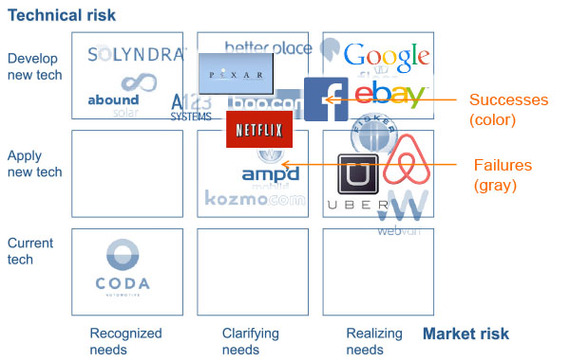Successful startups can transform the way we look at the world and ourselves, as well as, create immense value and skyrocket to the top of the Fortune 500 list. Some of these startups were design driven, think: Apple, Nike, HP, Sony and Nokia. However few of these were actually founded by designers, other than, AirBnB, Dyson and Disney. So, why have so few of the best design driven startups of the last decade been founded by designers?
AirBnB is the recent poster child of the best design driven startup in the hospitality business. Brian Chesky and Joe Gebbia, both graduates from Rhode Island School of Design, founded the firm in 2008 and by April 1014 it was valued at ten billion dollars. The firm quite simply connects people with beds to rent to travelers who need a place to sleep. AirBnB picked their business model wisely, since online connector startups have a distinct advantage since they do not require huge upfront capital investments in development and manufacturing.
On the other end of the spectrum are the automotive startups and there are few businesses that can be as challenging as these. Fisker Automotive (founded 2007) and Tesla Motor (founded 2003) are two of the latest arrivals on the automotive scene, which is known to be brutal to newcomers. Think: Vector Motors, DeLorean Motors and Tucker Car Corporation. Fisker and Tesla's founders had very different backgrounds and destiny treated them accordingly.
Designer, Henrik Fisker and model maker Bernhard Koehler founded Fisker Automotive and the two long-term friends had all the prerequisites for a successful new venture, (decades of automotive experience from BMW and Ford) except for startup experience. We know that first time Venture Capital (VC) financed startups have an eighteen percent success rate.
Tesla Motors was founded in 2003 by Elon Musk, Martin Eberhard, Marc Tarpenning, JB Straubel and Ian Wright and although none of these entrepreneurs had automotive experience (coming as they did from PayPal), their previous VC financed successful startup experience, increased their odds of success to thirty percent. Although, strictly speaking, Tesla was not founded within the last decade, it is included here as a comparison for Fisker Automotive.
With startup statistics stacked against Fisker Automotive from the beginning, they ran into challenges when entering the electric/hybrid car market segment, that included rushed development and battery problems. The only difference was, as a startup, they did not have the deep pockets necessary to weather the storms and Fisker Automotive ran out of cash before they reached the break-even point.
Tesla, with a more experienced startup team, managed their investors and cash flow more effectively, enabling them to obtain an IPO (Initial Public Offering) thereby securing an additional infusion of much needed cash. Whether this will be enough to take on the established players in the business, still remains to be seen. What would you rather drive, an electric, Maserati, Porsche, BMW or Tesla?
Nearly everyone tends to forget that startups are expected to fail and thus are susceptible to seduction from the excitement of novelty. Though studies show design to be vital to startups - it probably only changes the probabilities for success by a dozen percentage points and although AirBnB and Fisker Automotive both leverage design sublimely, it still takes startup experience to succeed.
